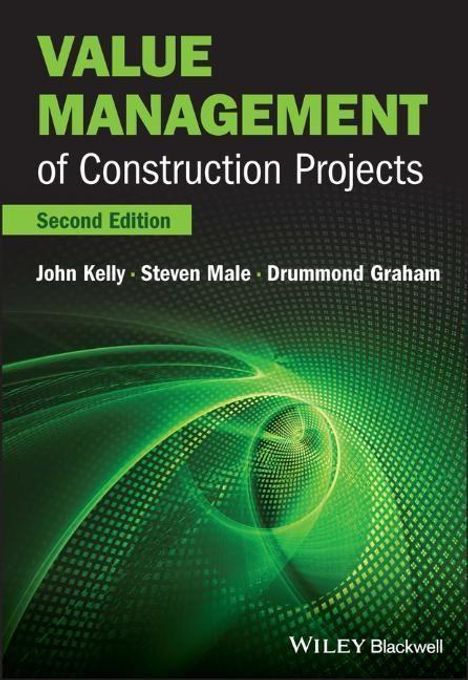John Kelly: Value Management of Construction Projects, Kartoniert / Broschiert
Value Management of Construction Projects
(soweit verfügbar beim Lieferanten)
- Verlag:
- Wiley, 11/2014
- Einband:
- Kartoniert / Broschiert
- Sprache:
- Englisch
- ISBN-13:
- 9781118351239
- Artikelnummer:
- 5419234
- Umfang:
- 576 Seiten
- Nummer der Auflage:
- 14002
- Ausgabe:
- 2nd Revised edition
- Copyright-Jahr:
- 2014
- Gewicht:
- 968 g
- Maße:
- 244 x 169 mm
- Stärke:
- 25 mm
- Erscheinungstermin:
- 10.11.2014
- Hinweis
-
Achtung: Artikel ist nicht in deutscher Sprache!
Klappentext
VALUE MANAGEMENT OF CONSTRUCTION PROJECTS
Second Edition
Value Management is a philosophy, set of principles and structured management methodology for improving organisational decision-making and value-for-money. It is well-established in the international construction industry and has been endorsed as good practice in a range of UK government sponsored reports.
The authors have addressed the practical opportunities and difficulties of Value Management by synthesising background, international developments, and benchmarking with their own extensive consultancy and action research experience in Value Management to provide a comprehensive package of theory and practice. Covering methods and practices, frameworks of value and the future of value management, this thoroughly updated second edition extends the integrated value philosophy, methodology and tool kit to describe the application of Value Management to service delivery, asset management and programmes, in addition to projects, products and processes. In particular, the new edition responds to:
- A range of recent UK industry and government publications; and most notably BS EN 16271: 2012 - Value management: Functional expression of the need and functional performance specification; the imminent update of BS EN 12973: 2000 Value Management; BS EN 1325 Value Management - Vocabulary, Terms and Definitions; the changes to "Value for Europe" governing the training and certification of Value Management in European Union countries; the UK Government's Management of Value (MoV) initiative, and other leading reports, international guidance and relevant standards.
- Changes in Value Management practice, particularly in programmes and projects.
- Developments in the theory of value, principally value for money measures, whole life value option appraisal, and benefits realisation.
- Initiatives in asset management covering the management of physical infrastructure, for example the suite of three standards under the generic title of BS ISO 55000: 2014 Asset Management, and its predecessor BSI PAS55 2008 Asset Management: Specification for the Optimized Management of Physical Assets.
It contains a dedicated chapter of exemplar case studies which demonstrate the new areas of theory and practice, and an extensive set of tools and techniques of use in Value Management practice.
Public and private construction clients and construction professionals such as cost consultants, quantity surveyors, architects, asset managers, engineers, and project managers will all find Value Management of Construction Projects essential reading. It will also be of interest to researchers and students on construction related courses - particularly those at final year undergraduate and at Masters level.


